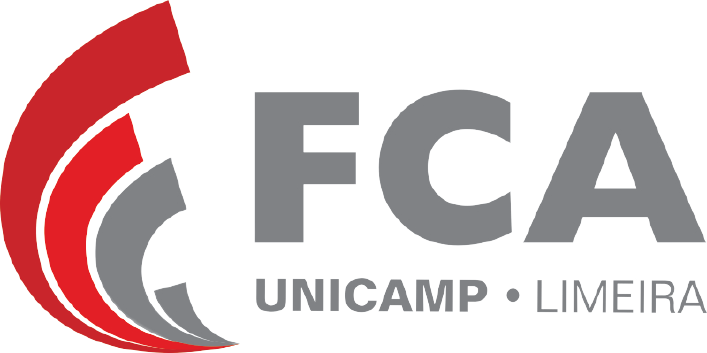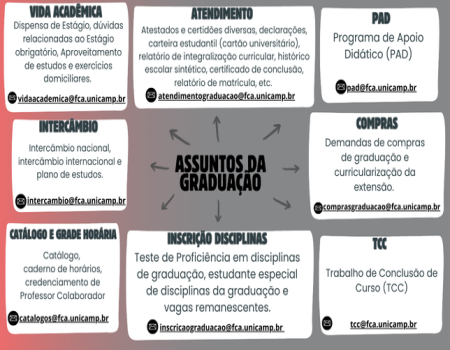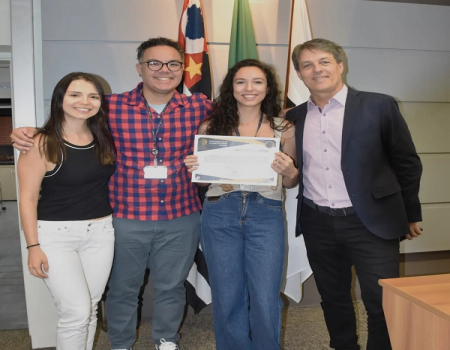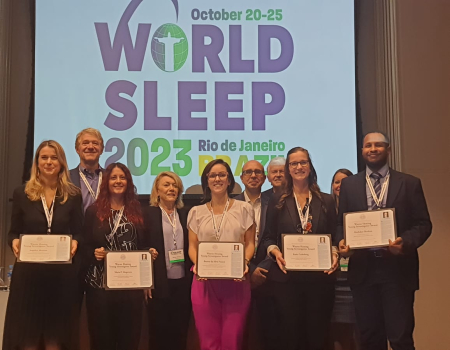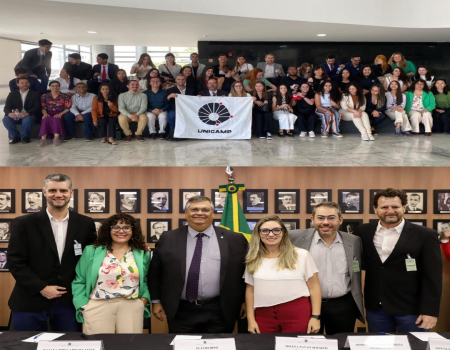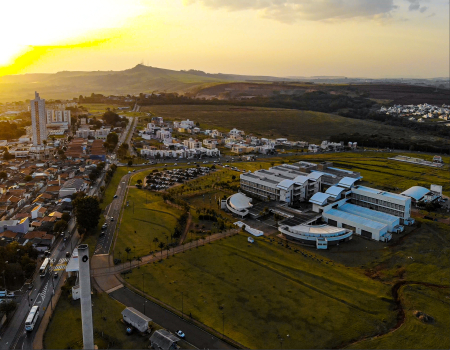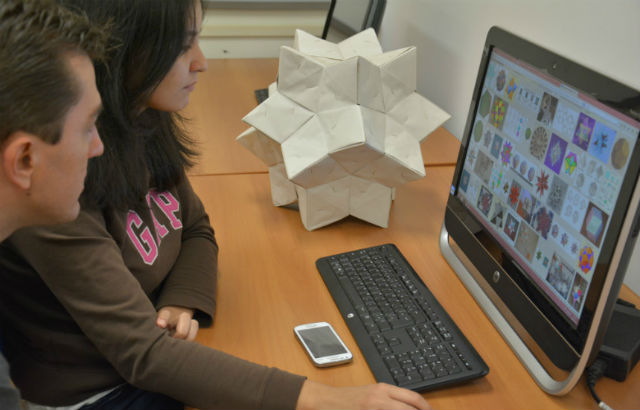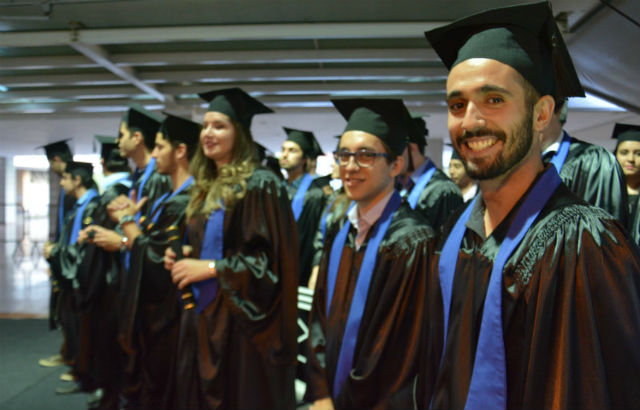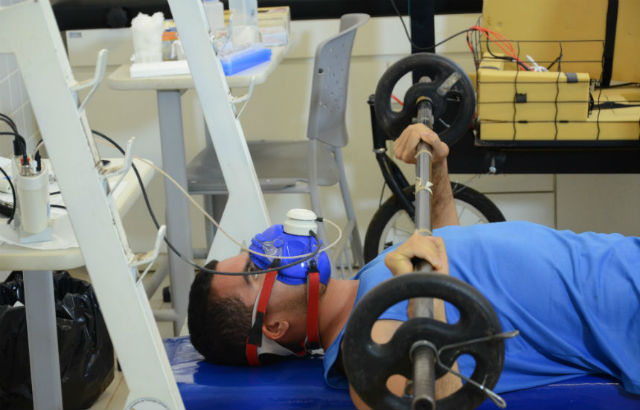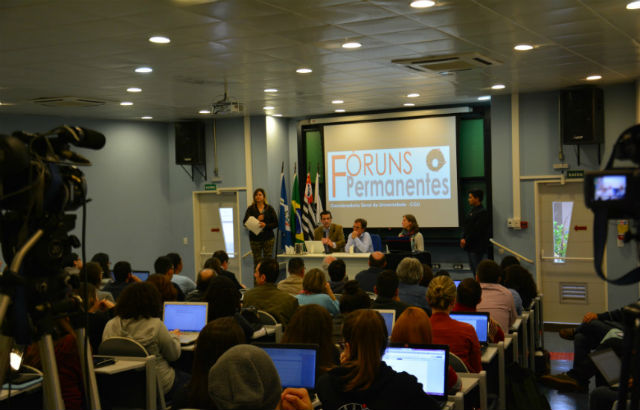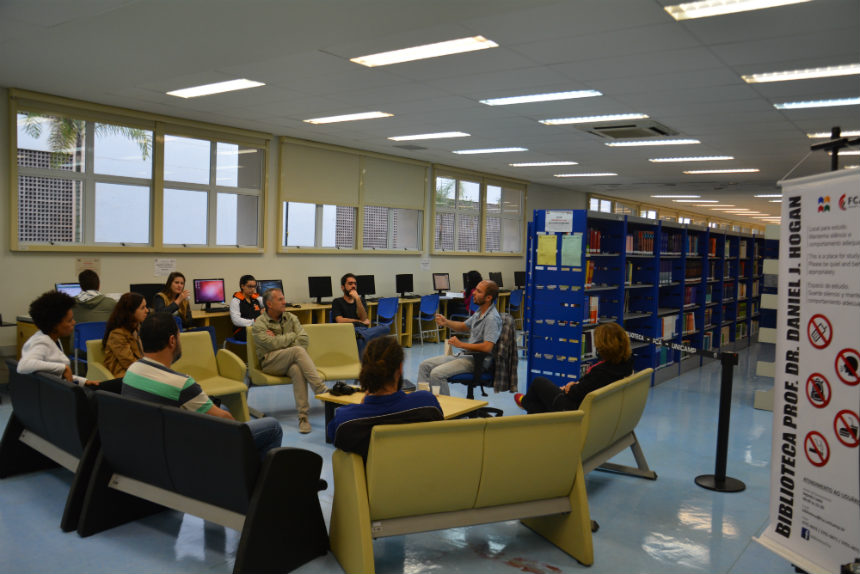ECONOMIC, SOCIAL, AND CULTURAL IMPACT OF THE PROGRAM
The Graduate Program in Administration (PPGA) at Unicamp has played a fundamental role in promoting economic, social, and cultural development through the training of highly qualified professionals, encouraging applied research, and strengthening connections between academia and various sectors of society. The program's activities extend beyond the academic environment, generating direct impacts on companies, government agencies, third-sector organizations, and local, regional, and international communities.
Over the years, PPGA has built a solid trajectory of commitment to innovation, knowledge transfer, and social transformation, fostering initiatives that promote entrepreneurship, efficient public governance, and sustainability. The program's actions range from outreach projects focused on professional training and social inclusion to applied research that influences public policies and business strategies, creating significant impacts across various spheres of society.
Below, a detailed overview of outreach activities, projects, and events that highlight PPGA's impact is presented. Subsequently, a structured analysis is conducted based on the criteria of program contribution consistency, intensity of its impact, innovation policy, and the participation of the Permanent Faculty Core (NDP) in initiatives connecting academia with society.
Outreach Projects and Actions (2021-2024)
The following main outreach projects and initiatives are highlighted, along with their respective responsible faculty members:
I) Pira 21 Project
PPGA Participants: Christiano França da Cunha (Coordinator)
Objective: Review and improve the strategic, tactical, and operational planning of the Pira 21 NGO, aligning its actions with the Agenda 21 of the city of Piracicaba/SP.
II) Studies on Organizational Financing Decisions
PPGA Participants: Johan Hendrik Poker Junior (Coordinator)
Objective: Analyze organizational financing decisions amid credit scarcity, using secondary data from publicly traded companies to deepen knowledge on capital structure and fundraising strategies.
III) Secondary Data Collection: Public Expenditure Observatory
PPGA Participants: Johan Hendrik Poker Junior (Coordinator)
Objective: Assess the efficiency of municipal public spending in areas such as health and education, using data from SIAFI (Integrated Financial Administration System of the Federal Government) and human development indicators.
IV) Asas Project
PPGA Participants: Christiano França da Cunha (Coordinator)
Objective: Empower young individuals through workshops on sustainability, entrepreneurship, ethics, and culture, as well as a preparatory course for entrance exams called Voa.
V) Spirituality and Quality of Life
PPGA Participants: Marco Antonio Figueiredo Milani Filho (Coordinator), Paulo Hayashi Junior (Member), Tristan Guillermo Torriani (Member)
Objective: Promote quality of life at Unicamp, encouraging reflections on spirituality and its influence on productivity and well-being.
VI) LABFIC's Support for Financial Market League (LMF) Activities
PPGA Participants: Johan Hendrik Poker Junior (Coordinator), Márcio Marcelo Belli (Member), Marco Antonio Milani Filho (Member), Paulo Sérgio de Arruda Ignácio (Member), Otávio Gomes Cabello (Member), Daniel Henrique Dario Capitani (Member), Luiz Eduardo Gaio (Member)
Objective: Formalize and expand academic support to the Financial Market League (LMF), fostering financial education, student training, and integration with the financial sector.
VII) Vem pra FCA
PPGA Participants: Luiz Eduardo Gaio (Member), André Sica de Campos (Member)
Objective: Promote FCA/Unicamp’s undergraduate programs to public school students, encouraging them to pursue higher education.
VIII) Support for ESALQ’s Strategic Planning
PPGA Participants: Adriana Bin (Member), Sergio Salles Filho (Coordinator)
Objective: Develop methodologies to support ESALQ/USP’s strategic planning.
IX) Graduate Students' Trajectories at Unicamp's PPGA
PPGA Participants: Cristiano Morini (Member), Adriana Bin (Member)
Objective: Monitor incoming and outgoing students of Unicamp's PPGA, identifying their profiles and socio-economic characteristics.
X) Development of Mobile Apps for NGOs: Technological Solutions for Social Impact
PPGA Participants: Gustavo Hermínio Salati Marcondes de Moraes (Coordinator), Nágela Bianca do Prado (Member), Damaris Chieregato Vicentin (Member), Betania Silva Carneiro Campello (Member)
Objective: Train participants in mobile app development for NGOs, improving volunteer management, fundraising campaigns, and institutional communication.
XI) PPGAdm Impact on Society - Scientific Dissemination
PPGA Participants: Gustavo Hermínio Salati Marcondes de Moraes (Coordinator), Adriana Bin (Member), Bruno Brandão Fischer (Member), Marco Antonio Figueiredo Milani Filho (Member), Luiz Eduardo Gaio (Member), Aline Mossim Sato (Member)
Objective: Enhance the scientific dissemination of PPGA using videos, podcasts, and social media to discuss academic topics and their practical applications.
Academic Events
PPGA faculty members have actively contributed to various academic events over the 2021-2024 period:
I) Training in Applied Statistics, Modeling, and Forecasting with SPSS
Participant: Eric
Objective: Provide training in applied statistics and predictive modeling for faculty members at the University of Western Santa Catarina.
II) XLVIII ANPAD Meeting – Accounting Division
Participant: Luiz Eduardo Gaio
Objective: Serve as Coordinator/Debater for the session on Accounting and Tax Management, fostering academic discussions on the topic.
III) XXVII SEMEAD - Administration Seminars
Participant: Luiz Eduardo Gaio
Objective: Moderate sessions presenting academic research papers at Brazil's largest administration conference.
IV) USP International Conference in Accounting
Participant: Otávio Cabello
Objective: Serve as topic leader for "Tax", coordinating and promoting discussions on taxation since 2021.
V) Congress on Scientific Initiation in Accounting - USP
Participant: Otávio Cabello
Objective: Coordinate the Taxation area, contributing to academic development in accounting.
Academic and Research Agreements
I) Agreement with Baita Accelerator
Participants: Gustavo Hermínio Salati Marcondes de Moraes (Sub-executor), Bruno Fischer (Executor)
Objective: Development of an acceleration methodology for Baita Accelerator, valid from 2021 to 2025.
II) Agreement with the State University of Alagoas (UNEAL) and UNICAMP
Participant: Gustavo Hermínio Salati Marcondes de Moraes (Executor)
Objective: Enable the Interinstitutional PhD (DINTER) and Interinstitutional Master’s (MINTER) programs in partnership with CAPES.
III) Agreement with Higher School of Economics National Research University and UNICAMP
Participant: Gustavo Hermínio Salati Marcondes de Moraes (Executor)
Objective: Establish a dual-degree program with the Master’s in Management and Policy of Science, Technology, and Innovation.
IV) Agreement with the Research Support Foundation of the State of Alagoas (FAPEAL) and UNICAMP
Participant: Gustavo Hermínio Salati Marcondes de Moraes (Executor)
Objective: Implement the project "Development of Strategic Frameworks for Science, Technology, and Innovation Policies in the State of Alagoas," addressing challenges such as low research investment, regional inequalities, and fragile scientific infrastructure.
V) Agreement with the University of Macerata and UNICAMP
Participant: Gustavo Hermínio Salati Marcondes de Moraes (Executor)
Objective: Enable a dual-degree program with the Master’s in International Relations and Finance & Markets at the University of Macerata, Italy.
VI) Agreement with Petrobras
Participant: Edmundo Inácio
Objective: Develop strategies, methods, and tools to promote technology-based entrepreneurship in the oil, gas, and energy transition sectors. Duration: December 2024 – June 2026.
VII) Agreement with ANEGEPE - Global Entrepreneurship Monitor
Participant: Edmundo Inácio
Objective: Conduct global entrepreneurship research, valid from March 2023 to February 2028.
VIII) Agreement with the National Federation of Customs Brokers (FEADUANEIROS)
Participant: Cristiano Morini
Objective: Research on modernizing Brazilian foreign trade, with a focus on the role of customs brokers.
IX) Agreement with the Brazilian Federal Revenue Service (RFB)
Participant: Cristiano Morini
Objective: Study on customs compliance, customs management, and logistics, within the scope of a FAPESP-funded project.
X) Agreement with the Cross-Border Research Association (CBRA), Switzerland
Participant: Cristiano Morini
Objective: Academic cooperation in customs risk management, as part of the European Union’s Horizon 2020 fund. Duration: 2021–2024.
XI) Agreement with ESALQ/USP
Participants: Sergio Salles and Adriana Bin
Objective: Support ESALQ in developing its strategic planning. Duration: December 2022 – February 2024.
XII) Agreement with the British Council - Women in Science
Participant: Angela Lucas
Objective: Establish a partnership between Brazilian and British universities to improve women's representation in science, including a workshop at Imperial College and actions at Unicamp.
XIII) Agreement with the Vladimir Herzog Institute
Participant: Angela Lucas
Objective: Coordinate the Evaluation Committee for the Vladimir Herzog Academic Award, in partnership with Unicamp.
XIV) Agreement between USP, UNESP, and UNICAMP - Assistive Technologies
Participant: Angela Lucas
Objective: Implement a joint call for research projects and innovations in assistive technologies.
XV) Agreement with the Biosystemic Institute (IBS) and UNICAMP
Participant: Christiano França da Cunha
Objective: Applied research on agricultural methodologies for greenhouse gas (GHG) emission inventories and sustainability studies in agribusiness. Duration: 2021–2026.
XVI) Agreement with the University of Aveiro (Portugal) - PhD Cotutelle
Participant: Johan Hendrik Poker Junior
Objective: Enable PhD cotutelle for three students from UNICAMP and the University of Aveiro, focusing on carbon risk and trade-off theory.
XVII) Agreement with the São Paulo Municipal Comptroller General’s Office (CGM-SP)
Participant: Johan Hendrik Poker Junior
Objective: Develop AI-based audit methodologies and public spending efficiency analysis systems.
XVIII) Agreement with Sebrae Piracicaba and Limeira City Hall - VIP Project
Participant: Cristiano Morini
Objective: Implement Vertically Integrated Projects (VIP) at Unicamp, an interdisciplinary methodology from Georgia Tech for developing social and urban solutions.
XIX) Agreement with the Municipal Tourism Council of Limeira
Participant: Ieda Makiya
Objective: Develop a business plan for Limeira’s Karting Complex, including official championship adaptations and a sustainable business model for the sports complex.
Initiatives for Integration and Cooperation with Other Graduate Programs (PPGs)
The integration between graduate programs (PPGs) is essential for building knowledge networks, enhancing research, and strengthening academic collaboration. In this context, the PPGA at Unicamp has promoted innovative initiatives that connect different national and international programs, including shared courses and collaborative projects.
I) Course: Introduction to Multi-Criteria Analysis Methods for Decision Support and Grey Systems Theory
Syllabus:
This course provides a comprehensive approach to multi-criteria analysis methods and their applications in decision support, with an emphasis on Grey Systems Theory. Topics covered include:
Content analysis processes:
- Delphi Process, AHP, Best-Worst
- Traditional decision-making methods: Traditional Critic, Entropy, SWARA, WASPAS, Promethee II, TOPSIS
- Fuzzy methods: Fuzzy Theory Concepts, TFN, Fuzzy Delphi, Fuzzy SWARA, Fuzzy TOPSIS, Fuzzy TOPSIS Class, Fuzzy Dematel, Fuzzy Cognitive Maps
- Grey Systems Theory: Grey Systems Basic Concepts, Grey Incidence Analysis, Grey Relational Analysis, Grey Clustering, Decision Making with Grey System
Integration and Cooperation
In the first semester of 2024, the course was offered in a hybrid format, allowing participation from students across various graduate programs in Brazil and abroad. This initiative strengthened academic collaboration and promoted knowledge exchange among researchers from different fields.
Participating Graduate Programs:
- Graduate Program in Mechanical Engineering (Unicamp) – Prof. Dr. Rosley Anholon
- Graduate Program in Administration (Unicamp) – Profs. Dr. Gustavo Hermínio Salati Marcondes de Moraes and Betania Campello
- Graduate Program in Production Engineering (EESC-USP) – Prof. Dr. Lucas Gabriel Zanon
- Graduate Program in Energy Systems Planning (Unicamp) – Profa. Dr. Carla Kazue Nakao Cavaliero
- Graduate Program in Agribusiness and Development (PGAD-UNESP, Tupã) – Profs. Dr. Eduardo Guilherme Satolo and Dr. Wagner Luiz Lourenzani
- Graduate Program in Production Engineering (PPGEP-So, UFSCar, Sorocaba) – Prof. Dr. Tiago Fonseca Albuquerque Cavalcanti Sigahi
- Graduate Program in Production Engineering and Accounting Sciences – Prof. Dr. Lucas Veiga Avila
- Master’s Program in Industrial Engineering Sciences (Universidad Católica del Norte, Chile) – Profa. Dr. Izabela Simon Rampasso
This international collaboration reinforces the course’s relevance, enabling an exchange of experiences and the development of high-impact academic networks.
II) Course: AD180 - Entrepreneurship and Socioeconomic Development
Learning Objectives:
This course explores the structure and evolution of entrepreneurship and innovation ecosystems, covering topics such as:
- Governance and configurations of innovation and entrepreneurship ecosystems
- Innovative entrepreneurship network models
- Evolutionary processes of regional development
Integration and Cooperation
The course is offered annually in the second semester, taught by Prof. Dr. Gustavo Salati Moraes and Prof. Dr. Bruno Fischer, in partnership with the National Research University Higher School of Economics (Russia).
Format and Participants:
Participants: Students from PPGA at Unicamp and the Master’s in Management and Policy of Science, Technology, and Innovation at Higher School of Economics (Russia).
Format: Hybrid – In-person for students in Brazil, and online for participants in Russia.
Language: English
This initiative enhances international academic exchange, providing students with a global perspective on entrepreneurship, innovation, and regional development.
III) Course: Research Seminars I (AD030) - Joint Sessions with e-Planning Seminar (MIT)
The Research Seminars I (AD030) course of the Graduate Program in Administration (FCA-Unicamp) has initiated synchronous sessions with the e-Planning Seminar from the Department of Urban Studies & Planning (DUSP) at the Massachusetts Institute of Technology (MIT).
Coordination:
Prof. Muriel Gavira (FCA-Unicamp)
Prof. Catedrático Pedro Ferraz de Abreu (MIT –
This initiative is supported by the coordination of the Graduate Program in Administration, as part of its internationalization efforts, and by the Research Center on Information Technologies for Participatory Democracy (CITIDEP - www.citidep.net).
Also participating in this initiative are:
PhD students from the Joint Doctorate in e-Planning (University of Lisbon, Nova University of Lisbon, and e-Planning Consortium).
Center for Training, Development, and Improvement of the Brazilian Chamber of Deputies (CEFOR – Brasília).
Course Topics:
Students and faculty from both institutions discuss contemporary technological and social challenges, such as:
E-Planning and research agenda: Impacts of information technologies on Society; Geopolitics of information society development; Public participation; Open Science; Privacy challenges
More Information:
https://www2.fca.unicamp.br/portal/pt-br/comunic-2/comunicacao-noticias/comunicacao-not-pesqpos/2651-iniciativa-integra-disciplinas-de-pos-graduacao-da-fca-e-do-mit.html
and http://www.e-planning.org/mit2023/icppit23.html
Extension Courses
PPGA faculty members are responsible for various Extension University Courses, including diffusion, extension, and specialization programs. These courses:
- Reach the general public or target specific groups and institutions (public or private).
- Update and improve knowledge and work techniques.
- Prepare specialists in specific academic and professional fields.
Extension Scholarships
One significant aspect of these courses is that revenues generated from them fund scholarships for graduate students (Stricto Sensu) at FCA across multiple programs:
- Graduate Program in Administration
- Nutrition, Sports, and Metabolism Sciences
- Production and Manufacturing Engineering
- Interdisciplinary Master’s in Human and Social Sciences
These scholarships are equivalent in value to CAPES Master's scholarships and are distributed based on criteria established by the postgraduate committee.
Research Support
Additionally, revenues from the courses help maintain the EIKON-REFINITIV (Thomson Reuters) database, which provides data for research conducted by PPGA faculty and students. This database supports:
Undergraduate scientific initiation research
- Theses and dissertations
- Final graduation projects (TCCs) in Administration and Production & Manufacturing Engineering
Main Extension Courses Coordinated by PPGA Faculty
MBA in Strategic People Management
Coordinator: Prof. Dr. Gustavo Hermínio Salati Marcondes de Moraes
Workload: 395 hours
Professional Specialization in Controllership and Finance
Coordinator: Prof. Dr. Márcio Marcelo Belli
Workload: 360 hours
Professional Specialization in Tax Management
Coordinator: Prof. Otávio Gomes Cabello
Workload: 360 hours
Professional Specialization in Strategic Innovation Management
Coordinator: Prof. Ruy de Quadros Carvalho
Workload: 360 hours
Professional Specialization in Digital Business
Coordinator: Prof. Cristiano Morini
Workload: 360 hours (100% online)
Prospecting, Prioritization, and Decision Support
Coordinator: Prof. Sérgio Luiz Monteiro Salles Filho
Workload: 40 hours
Evaluation of Research, Development, and Innovation Results and Impacts
Coordinator: Prof. Sérgio Luiz Monteiro Salles Filho
Workload: 40 hours
Support for Student Organizations
The Graduate Program in Administration (PPGA) at Unicamp is strongly committed to practical training and student integration with the job market, encouraging participation in student organizations that provide real-world experiences in management, innovation, and entrepreneurship. Faculty members of the program serve as mentors and advisors to various academic leagues and junior enterprises, providing strategic and academic support for student activities.
I. Support for Entrepreneurship and Innovation Organizations
Christiano França da Cunha
- Enactus – An organization focused on social entrepreneurship and sustainable development, encouraging community impact projects.
- Marketing League – A group that promotes training and events in marketing, connecting theory and practice.
- Integra Junior Enterprise – A junior enterprise that provides consulting services to businesses and startups, allowing students to apply academic knowledge in real projects.
André Luiz Sica de Campos
- Eixo Público Junior Consulting – A junior enterprise specializing in public administration and public policies, involving students in the modernization of public administration.
Paulo Sérgio de Arruda Ignacio
- Integra Junior Enterprise – Serves as a mentor, assisting in the growth and enhancement of the junior enterprise’s services.
- Academic Center for Manufacturing and Production (CAMP) – Represents students in the manufacturing and production fields, organizing events, lectures, and academic support.
II. Support for Finance and Management Organizations
Johan Hendrik Poker Junior
- Financial Market League (LMF) – A student organization focused on financial market training, offering courses, certifications, and academic competitions.
Luiz Eduardo Gaio
- Academic Center for Administration Students at Unicamp Limeira – A student representation body that advocates for administration students’ interests and promotes academic and professional events.
Daniel Henrique Dario Capitani
- Sinergia – Energy Training Center – A group that develops research activities, training programs, and events in the energy sector.
III. Support for Technology and Data Organizations
Betânia Silva Carneiro Campello
- Data Science League (LDS) – A group that promotes studies, training, and projects in data science and artificial intelligence.
Angela Christina Lucas
- Unicamp Internship League (LIESTAG) – A student organization focused on connecting students with internship opportunities, offering workshops and networking with companies.
Impact of PPGA Faculty on Student Organizations
The involvement of PPGA faculty members in student organizations strengthens students' practical training, creating an environment conducive to developing essential market skills. Academic and professional guidance allows academic leagues, student associations, and junior enterprises to expand their impact, fostering innovation, entrepreneurship, and professional development.
CLARITY AND CONSISTENCY OF PPGA CONTRIBUTIONS OVER TIME
The PPGA at Unicamp has built a continuous impact history through research, outreach projects, and interinstitutional collaboration. The clarity and consistency of the program’s contributions can be demonstrated by the following aspects:
Outreach Projects – The program maintains long-standing social impact initiatives, such as Pira 21 Project, which focuses on strategic planning for the NGO Pira 21, and Asas Project, which develops youth leadership through workshops on sustainability, entrepreneurship, and ethics.
Public Administration Support – Initiatives like the Public Expenditure Observatory analyze municipal spending efficiency in health and education, contributing to more effective public policies.
Entrepreneurship and Innovation Promotion – Projects such as Mobile App Development for NGOs and the Unicamp Digital Engagement Platform (Uni.Sociedade) strengthen the relationship between academia and society, fostering innovation and positive impact.
Financial Education Promotion – The support of LABFIC for the Financial Market League (LMF) is an example of how PPGA trains students in finance, contributing to the dissemination of economic knowledge in both academia and the market.
The trajectory of PPGA at Unicamp demonstrates a solid and enduring commitment to social, economic, and cultural development, aligned with modern societal demands.
INTENSITY OF IMPACT AT LOCAL, REGIONAL, NATIONAL, AND INTERNATIONAL LEVELS
The intensity of PPGA’s impacts can be assessed by the scope of its initiatives, which unfold in three dimensions:
I) International Level
- The dual-degree programs with the Higher School of Economics (Russia) and the University of Macerata (Italy) enhance students’ international training.
- Active participation in international research networks, such as the partnership with the Cross-Border Research Association (CBRA), Switzerland, focused on customs risk management.
- The course Ecosystems of Entrepreneurship and Innovation, taught in partnership with the Higher School of Economics, integrates students from Brazil and Russia.
II) National and Regional Level
- The agreement with the State University of Alagoas (UNEAL) enabled the Interinstitutional PhD (DINTER) program, training 20 faculty members at the doctoral level, strengthening academic qualification in the region.
- The agreement with the Brazilian Federal Revenue Service (RFB) supports research on compliance and customs management, generating direct impact on public administration.
- The agreement with the Research Support Foundation of the State of Alagoas (FAPEAL) plays a strategic role in developing science, technology, and innovation policies, advancing academic qualification and public policy formulation. Currently, five FAPEAL employees are pursuing PhDs at PPGA, enhancing the foundation’s technical and scientific expertise.
- The VIP Project, in partnership with Sebrae Piracicaba and Limeira City Hall, improves municipal economic and social development indicators.
III) Local Level
- The Uni.Sociedade platform connects Unicamp with the local community, promoting courses, events, and university-community interactions.
- Initiatives like Vem pra FCA encourage students from public schools to enroll in higher education.
- The Sinergia Energy Training Center provides professional training for the regional energy sector.
These examples demonstrate that PPGA’s actions extend beyond academia, generating tangible and sustainable impacts at multiple levels.
CLEAR AND CONSISTENT POLICY ON INNOVATION, KNOWLEDGE TRANSFER, AND SOCIAL IMPACT
The PPGA at Unicamp, through its faculty, follows a clear and structured policy to promote innovation, knowledge transfer, and social impact, reflected in the following strategies:
I) Innovation Promotion:
- Support for startup development and business acceleration through the agreement with Baita Accelerator.
- Extension courses tailored to market demands, such as the MBA in Strategic People Management and the Specialization in Tax Management.
- Development of mobile apps for NGOs, providing technological solutions for social impact.
II) Knowledge Transfer:
- Scientific production focused on public policies, sustainability, and economic development, with publications and participation in events such as SEMEAD and ANPAD Meeting.
- Faculty involvement in international conferences, including USP’s International Conference on Accounting and ENANPAD.
- Scientific Dissemination – The PPGAdm Impact on Society project expands the reach of the program's research, using videos, podcasts, and discussions on public interest topics.
III) Social Impact:
- The Construindo Alento Project strengthens the employability of vulnerable communities through mentorships and workshops.
- The Unicamp Internship League (LIESTAG) facilitates student access to job market opportunities.
- The Regenera Cerrado Workshop, funded by Cargill, supports research on agribusiness sustainability.
PPGA’s policy demonstrates a strategic and integrated commitment to innovation, social impact, and knowledge transfer.
PPGA at Unicamp stands out for the consistency and clarity of its contributions over time, impact across different levels, strong innovation promotion, and high faculty participation in impactful initiatives. The program transcends academic boundaries, becoming a vector for economic, social, and cultural transformation, driving knowledge and innovation for sustainable development.
